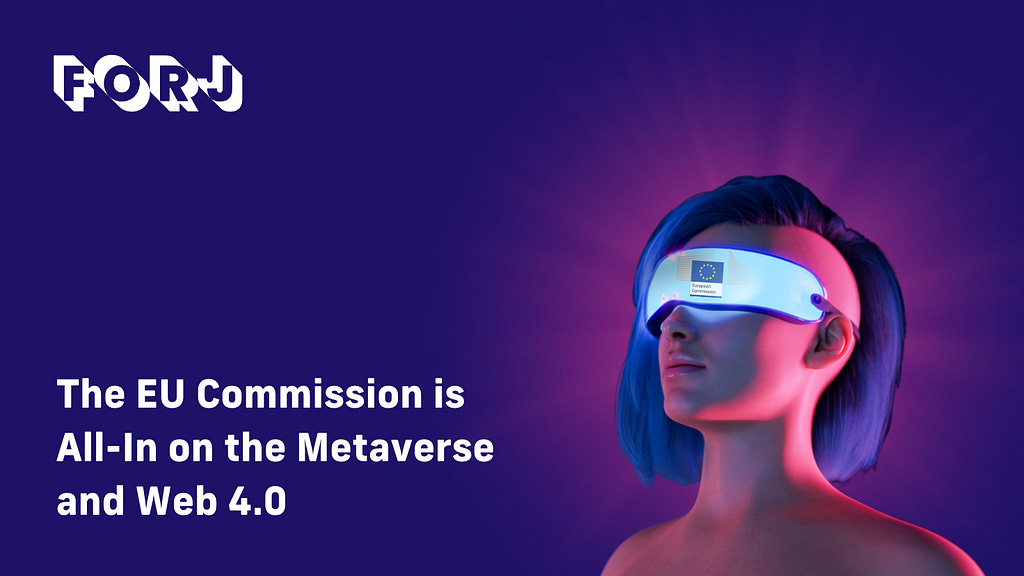European Commission Sets Its Vision for Metaverse and Web 4.0
The European Commission is totally embracing Web3 and setting its sights on Web 4.0 and virtual worlds. An early draft obtained by EURACTIV reveals their strategy, which includes existing programs, partnerships, and embracing cutting-edge tech like AI, IoT devices, blockchain transactions, and extended reality.
The concept of virtual worlds comes even before the Metaverse. However, its improved connectivity infrastructure has sparked considerable interest from tech giants like Meta (formerly Facebook). Experts predict that the global Metaverse market will explode from €27 billion in 2022 to a mind-blowing €800 billion by 2030. Commissioner Thierry Breton recognized the potential and announced a non-legislative initiative on the topic last year.
European Commission on Twitter: "This week, the #vdLCommission meets to discuss:🔹 Greening freight transport package🔹 Web 4.0 and virtual worlds🔹 Victims' rights pic.twitter.com/2Icdbt6UJX / Twitter"
This week, the #vdLCommission meets to discuss:🔹 Greening freight transport package🔹 Web 4.0 and virtual worlds🔹 Victims' rights pic.twitter.com/2Icdbt6UJX
Let’s dive into the draft highlights.
Citizens:
The Commission aims to promote open and highly distributed technologies and standards, to enable interoperability between platforms and networks and freedom of choice for users. The core of these technological developments will be sustainability. The commission wants to apply existing legislation on privacy, consumer protection, data governance, and platform regulation to the Metaverse.
Skills and Research:
They’re planning to support programs that help us develop the skills needed for virtual world technologies, through programs like Digital Europe and Creative Europe. Additionally, they’ll be funding research on how the Metaverse impacts our well-being under the Horizon Europe program. To attract highly skilled specialists from outside the EU, an initiative is set to launch in the third quarter of 2023.
Regulation and Safety:
The Commission will deliver a Virtual World Toolbox for the general public in early 2024. A better Internet for kids strategy and the code of conduct for age-appropriate design will also cover the Metaverse. To combat disinformation, the Commission seeks synergies with initiatives like the European Digital Media Observatory and the Code of Practice on Disinformation.
Companies:
For companies in the EU, the Commission is promising regional hubs specializing in 3D modeling, gaming, and Virtual Reality as it recognizes the challenges they face in adopting new technologies and accessing financing. That’s why they’re exploring partnerships with EU countries to develop an industrial roadmap and invest in cutting-edge technologies. They’re even planning to establish regulatory sandboxes for virtual worlds and Web 4.0, providing businesses with a safe environment to test new tech and innovative business models. Additionally, they’ll conduct a study to analyze business opportunities and barriers, while creating a toolbox to combat counterfeiting in the metaverse.
Interoperability and Governance:
The EU executive acknowledges concerns about Big Tech companies creating closed ecosystems, or “walled gardens,” to retain users. To ensure interoperability, the Commission will engage with standard development organizations. Furthermore, it plans to establish a technical multi-stakeholder governance process to address aspects of virtual worlds and Web 4.0 that existing internet governance institutions cannot cover.
With a comprehensive strategy encompassing citizens, companies, public policies, and governance, the EU aims to pioneer a future that merges the physical and digital realms seamlessly.
The EU Commission is All-In on the Metaverse and Web 4.0 was originally published in gam3on on Medium, where people are continuing the conversation by highlighting and responding to this story.




